The workshop was divided into four sessions: the Northern mountainous region (two morning sessions, with 12 presentations) and the Truong Son - Central Highlands region (two afternoon sessions, with 10 presentations). Attending and participating in the opening ceremony and chairing the workshop were representatives from the University's leadership, the University's Trade Union, the French School of Far Eastern Studies in Vietnam, professors, scientists, lecturers, researchers from within and outside the University of Social Sciences and Humanities, along with a large number of scholars, researchers, postgraduate students, and undergraduate students.
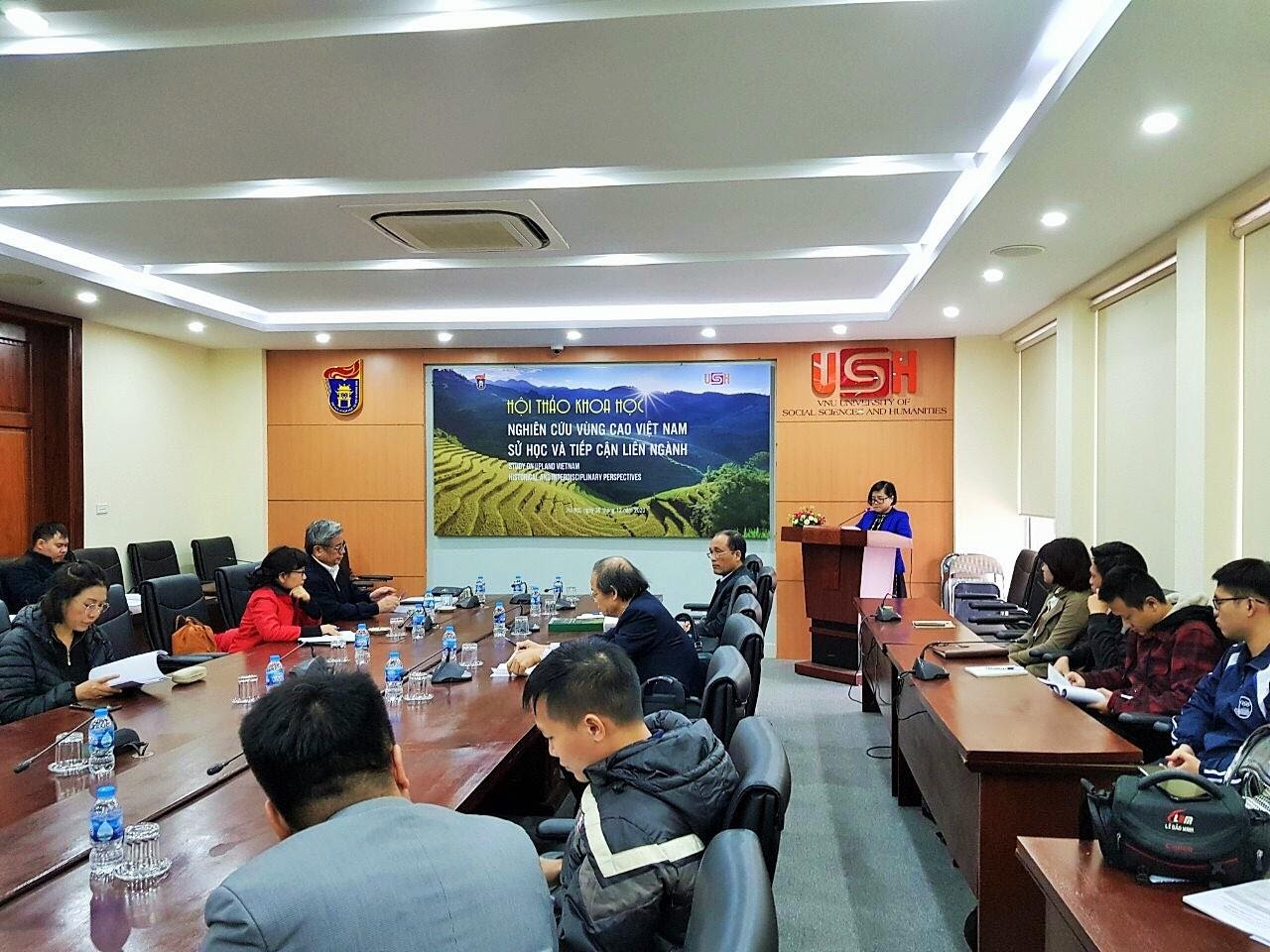
Associate Professor Tran Thi Minh Hoa, Vice Rector of the University, delivered the opening speech.
In his research work, "History and Culture of Vietnam: A Partial Approach," which won the Ho Chi Minh Prize for Science and Technology (2007, 2012), the late Professor and People's Teacher Phan Huy Le (1934-2018) summarized and proposed the principle of Multilinearity, Comprehensiveness, and Totality of Vietnamese history and culture, especially the Ancient and Medieval periods. Accordingly, "Vietnamese history is understood as the history of the national communities, communities of people, and ethnic groups that have lived on the territory of present-day Vietnam and have contributed to the historical process of Vietnam, to the process of building and defending the country, and to the process of creating and preserving Vietnamese culture." Over the past half-century, modern Vietnamese historiography, particularly during the Doi Moi (Renovation) and international integration period from the 1990s onwards, has gradually realized this principle, especially by supplementing the historical narratives of Sa Huynh - Lam Ap - Champa in Central Vietnam and Dong Nai - Oc Eo - Funan in Southern Vietnam, so that Vietnamese history is no longer linear and incomplete. However, a vast historical and cultural space encompassing the highlands and mountainous regions of Vietnam has been and continues to be presented modestly within the overall narratives and periods of Vietnamese history.
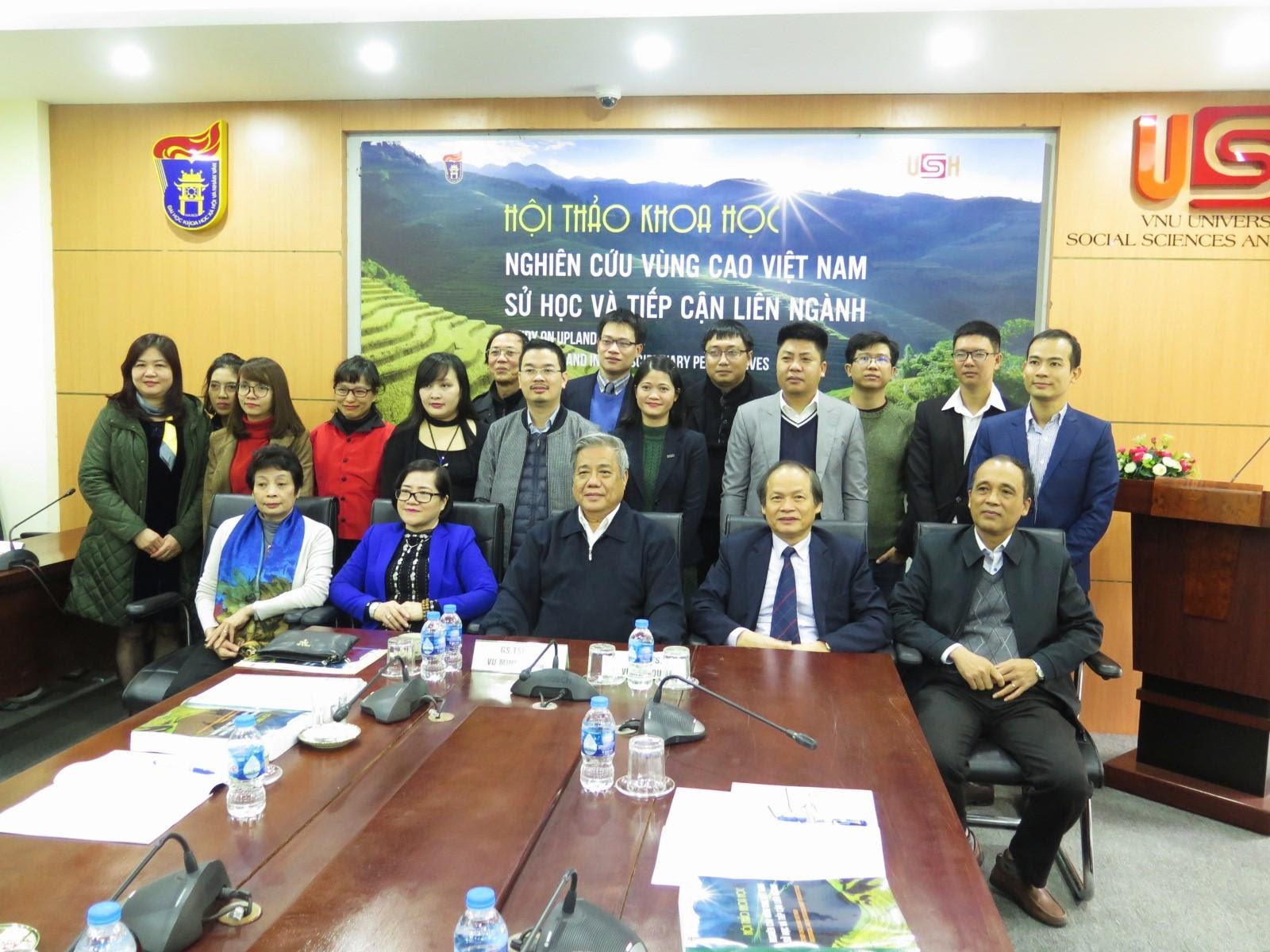
Representatives of the Organizing Committee and delegates pose for a commemorative photo at the opening of the workshop.
Today, Vietnam's territory is dominated by mountainous terrain, covering approximately three-quarters of its area. This terrain is structured in two main directions: Northwest-Southeast, such as the Hoang Lien Son mountain range and the northern Truong Son range; and in an arc shape, such as the Dong Trieu, Ngan Son, Bac Son, and Song Gam mountain ranges converging towards Tam Dao. Particularly noteworthy are the North-South and Northeast-Southwest mountains of the southern Truong Son range, creating a pristine, mysterious historical and cultural space reminiscent of the Central Highlands. Within the large family of Vietnamese ethnic groups, the majority of minority groups live and define their cultural identities in the highlands, from the hillsides and midlands to the slopes and peaks of the mountains. The communities and cultures of the Northwest, Northeast, Truong Son, and Central Highlands have integrated and contributed to the formation of the Vietnamese nation, preserving indigenous Vietnamese cultural imprints and playing a significant role in the nation-building and defense efforts. The history of Vietnam's highlands, a history of ethnic groups with little or no written language, nevertheless needs to be considered, supplemented, and placed within the flow of Vietnamese history – a multi-layered and comprehensive history.
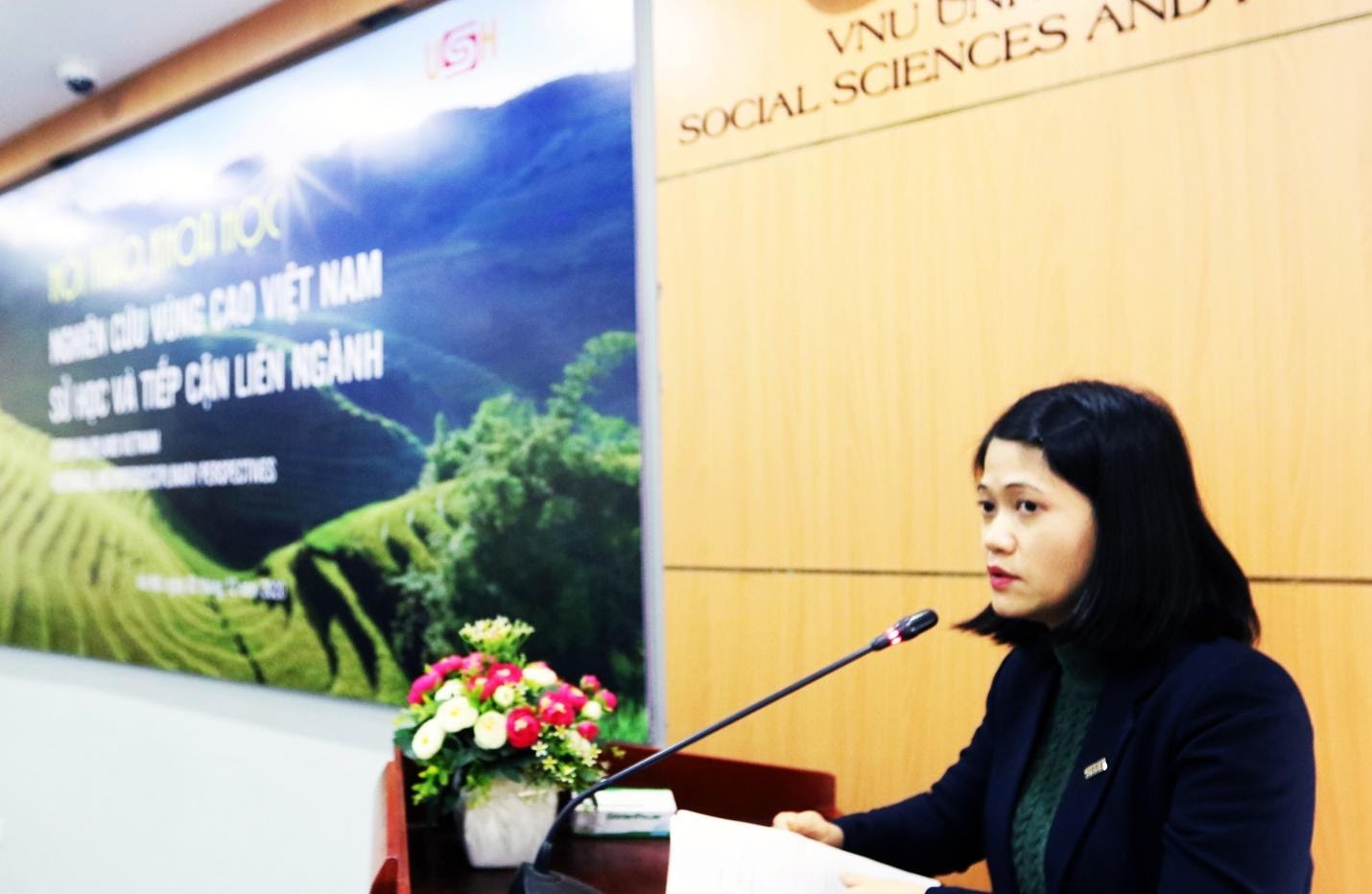
Dr. Do Thi Thuy Lan (Department of History) presented the introductory report for the conference.
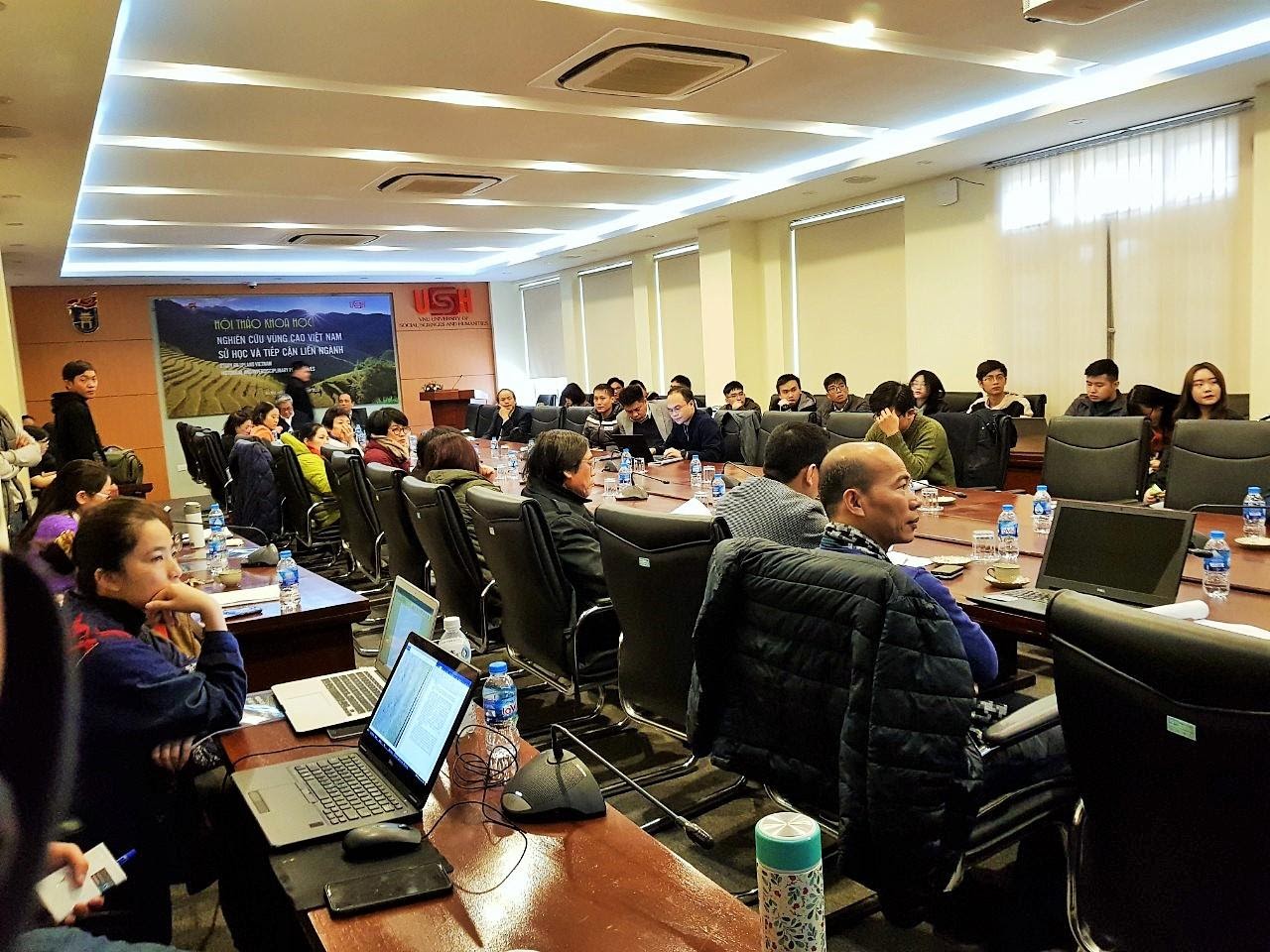
Scene from the Workshop during Session 1 (Northern Mountain Region 1), morning of December 30, 2020
The Department of History, Faculty of Social Sciences and Humanities, is one of the leading units in research on Vietnam's highlands, as evidenced by its scientific achievements on the Tay Son Thuong Dao region immediately after the liberation in 1975. In 2009-2010, the Department of Anthropology (formerly the Department of Ethnology, within the Faculty), following the general trend of international academia, separated to become an independent unit directly under the University. Therefore, scientific topics concerning ethnic minorities and mountainous regions became a gap in Vietnamese historiography. Furthermore, in the current multidisciplinary and interdisciplinary trend, with history as the foundation, or using history as the basis, inviting and gathering experts from fields such as Anthropology, Archaeology, Cultural Studies, Literature, Sino-Vietnamese Studies, Linguistics, Political Science, etc., to build knowledge on a common topic is essential and entirely feasible. Meanwhile, both internationally and domestically, many researchers have recently shown interest in and achieved scientific successes regarding Vietnam's highlands, such as Oscar Salemink, John Kremers Whitmore, James A. Anderson, Andrew Hardy, Philippe Le Failler, Johann Grémont, Momoki Shiro, Trinh Sinh, Trinh Nang Chung, Tran Anh Dung, Nguyen Tien Dong… and younger scholars like Catherine Churchman, Kathleen T. Baldanza, Bradley Camp Davis, Christian C. Lentz, William B. Noseworthy, Kazuki Yoshikawa…, as well as young Vietnamese scientists with formal training both domestically and internationally: Pham Le Huy, Vu Duong Luan, Dang Hong Son, Nguyen Van Anh, Nguyen Thi Hai, Nguyen Manh Tien, Ho Thanh Tam, Nguyen Dang Anh Minh, Nguyen Huu Manh, Lu Thi Thanh Le, Nguyen Phuong Lien… In the last three years, with effort and passion, young lecturers of the History Department have organized a series of scientific seminars on the topic of highlands, similar to those of Catherine Churchman and Dang Hong Son, Pham Le Huy (2017), James Anderson and Nguyen Quang Ngoc, Do Thuy Lan, Tran Anh Dung (2019), Andrew Hardy and Dao The Duc, Ho Thanh Tam, Dang Hoai Giang (2020), Andrew Hardy and Nguyen Quang Ngoc, Phan Phuong Thao (2020).
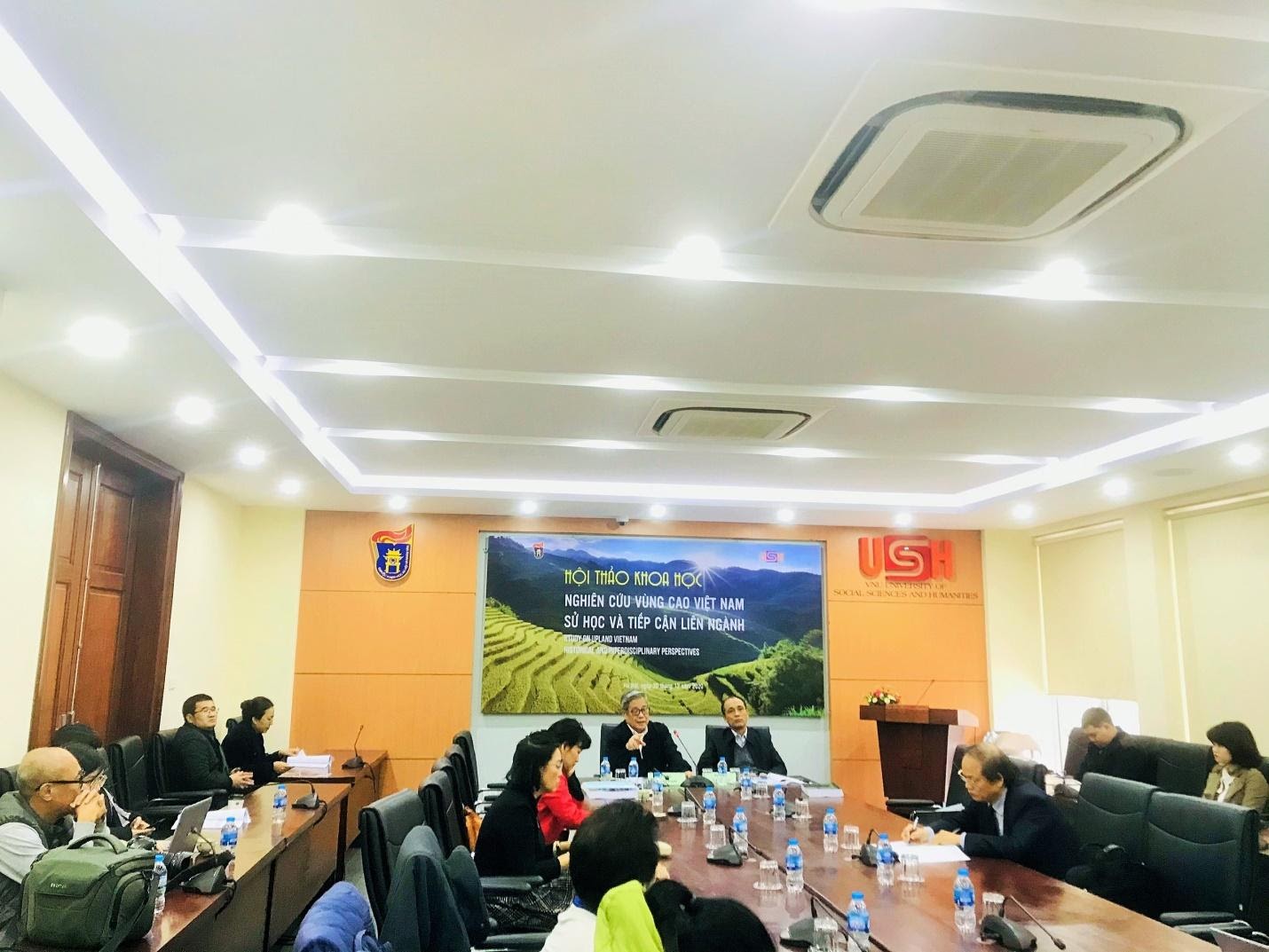
Prof. Dr. Vu Minh Giang & Assoc. Prof. Dr. Vu Van Quan (Faculty of History) chaired Session 1
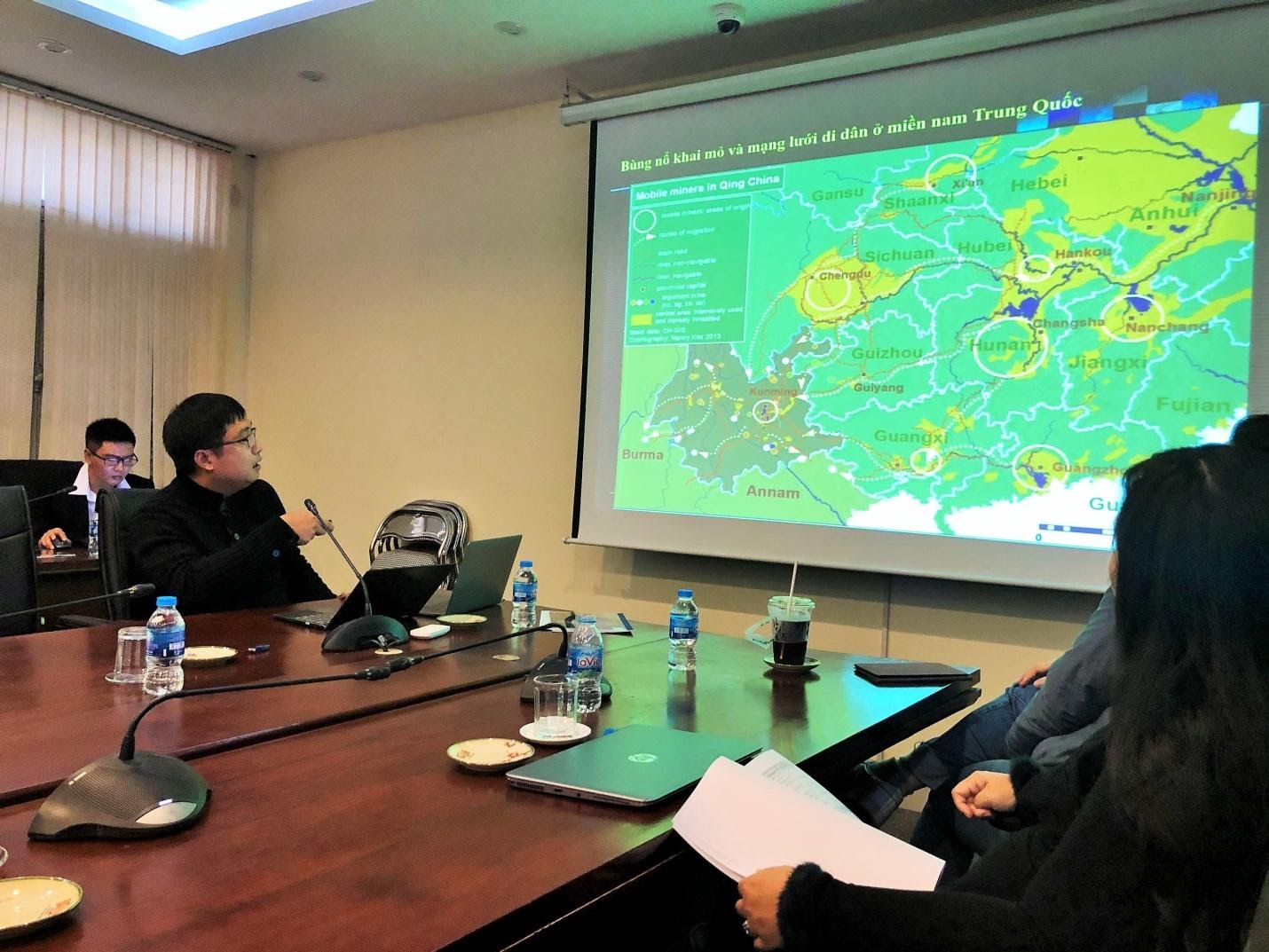
However, to date, there has been no large-scale forum where scholars and research experts can gather and exchange academic knowledge and research experience, form working groups, and work towards common products that serve science and practice.
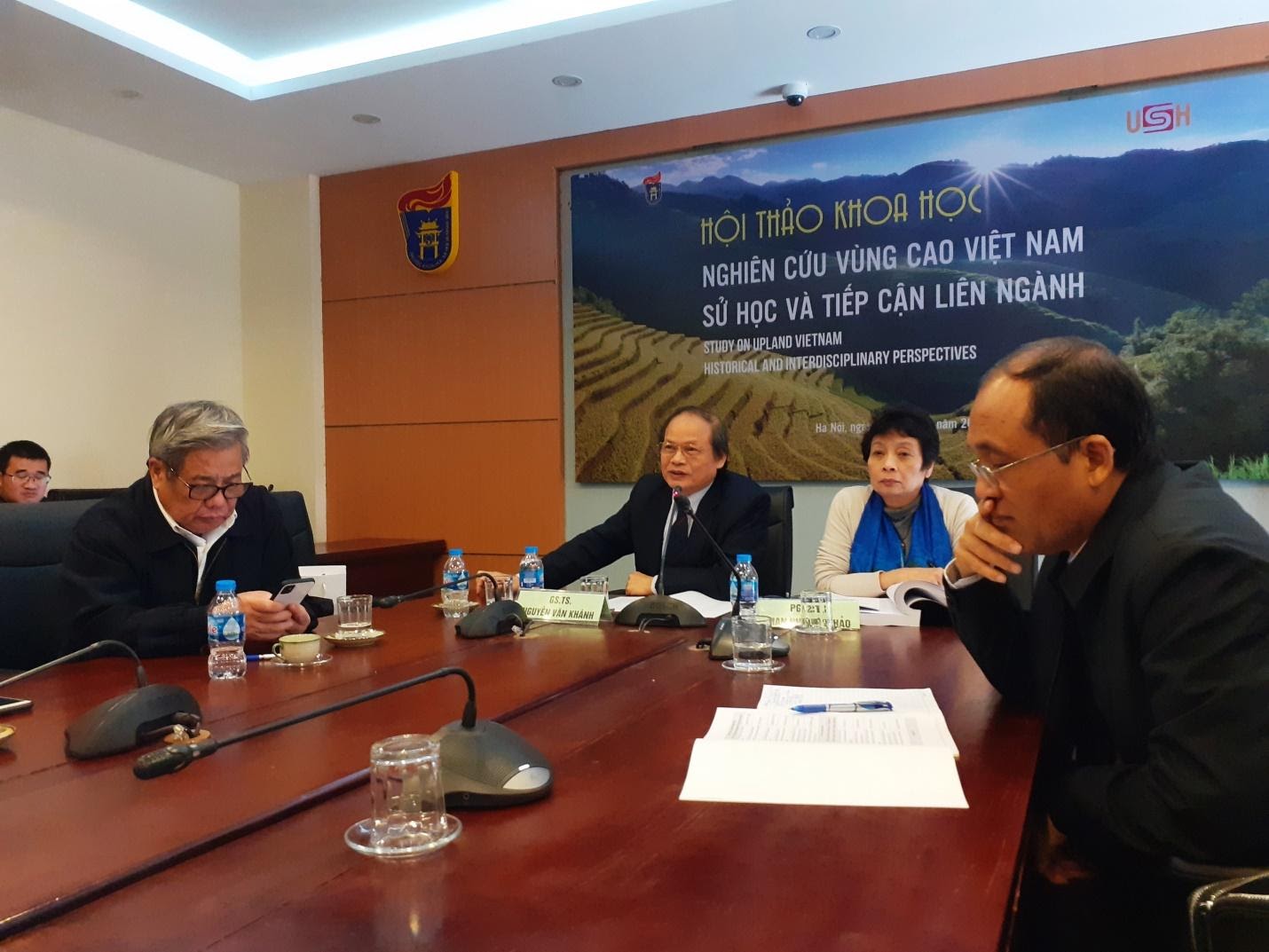
Prof. Dr. Nguyen Van Khanh & Assoc. Prof. Dr. Phan Phuong Thao (Faculty of History) chaired Session 2 (Northern mountainous region 2)
With that in mind, the In-Depth Scientific Workshop “Research on Vietnam’s Highlands: Historiography and Interdisciplinary Approaches” was organized by the University of Social Sciences and Humanities, Vietnam National University, Hanoi, with the Faculty of History assigned as the coordinating body. Despite the Covid-19 pandemic affecting less than half of 2020, the workshop received 22 scientific papers from 23 researchers, considered young and/or middle-aged professionals, from major scientific institutions in Hanoi, including the Faculty of History (University of Social Sciences and Humanities, Vietnam National University, Hanoi); the Faculty of History (Hanoi Pedagogical University) with 3 reports; faculties within the University of Humanities (Anthropology, Oriental Studies, Literature, Vietnamese Studies); member universities and institutes of Vietnam National University, Hanoi (Vietnam-Japan University, Vietnam Studies and Development Science Institute); and research institutes under VASS (Institute of Literature, Institute of Cultural Studies, Institute of Imperial City Studies). And especially noteworthy are the presentations from institutions outside Hanoi, namely Thai Nguyen University and Nghe An Culture Magazine.
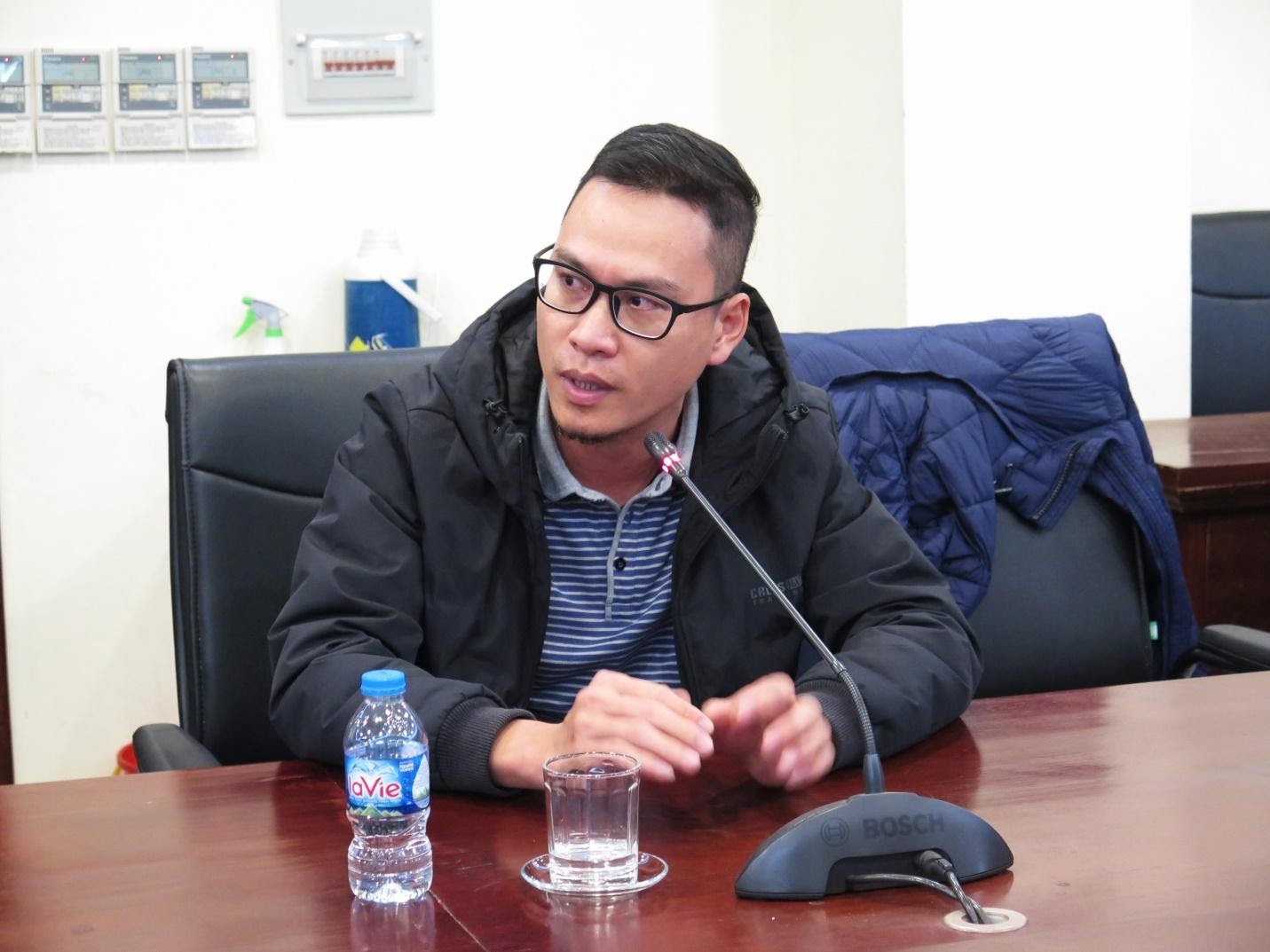
Dr. Nguyen Manh Tien (Institute of Literature, Vietnam Academy of Social Sciences) presented a paper entitled "From H'Mong Personality to the Power System in Mountainous Regions".
The 22 papers are therefore the result of research from many different disciplines and specialties of social sciences and humanities: History (11 papers), Archaeology (04), Anthropology (03, including 01 report belonging to both History and Religious Anthropology), Literature (03), and Cultural Studies (01 paper).
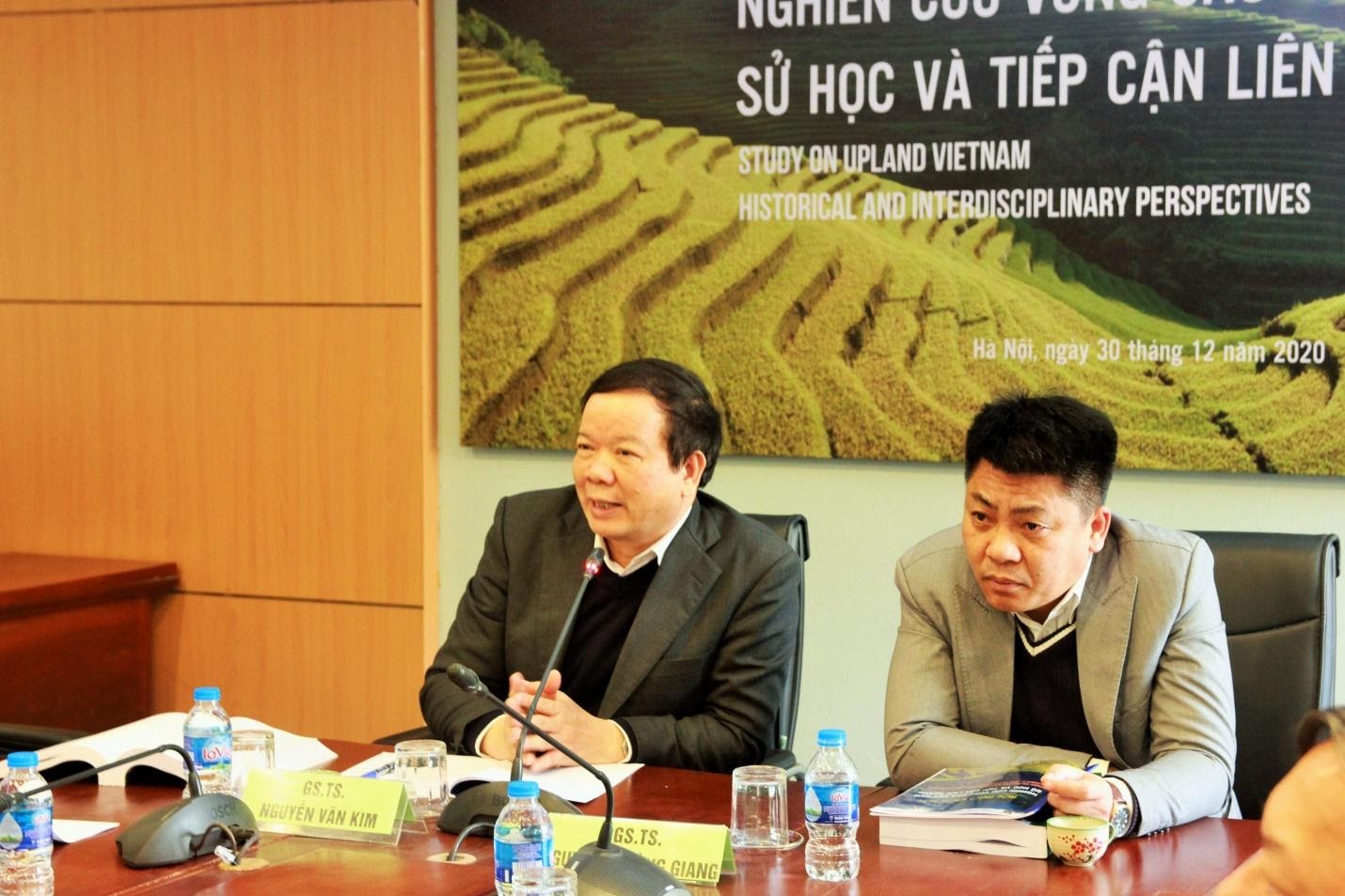
Prof. Dr. Nguyen Van Kim (Faculty of History) & Assoc. Prof. Dr. Nguyen Truong Giang (Faculty of Anthropology) chaired Session 3 (Truong Son - Central Highlands Region 1)
Most of the papers presented were the authors' own long-standing, in-depth research, showcasing their expert academic knowledge. The scientific content presented and discussed covered a wide range of topics, including religion, politics, state policies, national defense borders, territorial development directions, local power, mining economics, trade networks, ethnic processes, migration issues, and cultural space; spanning from the northern mountainous region (12 papers, including one report going further west into North and Central Vietnam) to the Truong Son - Central Highlands region (9 papers) and the lower Mekong River basin (1 paper); encompassing the entire timeline from the origins of ethnic groups to the present day, especially over the past millennium (10th-21st centuries). Over those more than 1000 years, different spaces/subregions, in varying stages and at different paces, integrated into the Vietnamese nation and territory, completing a modern Vietnam in the 18th, 19th, and 20th centuries.
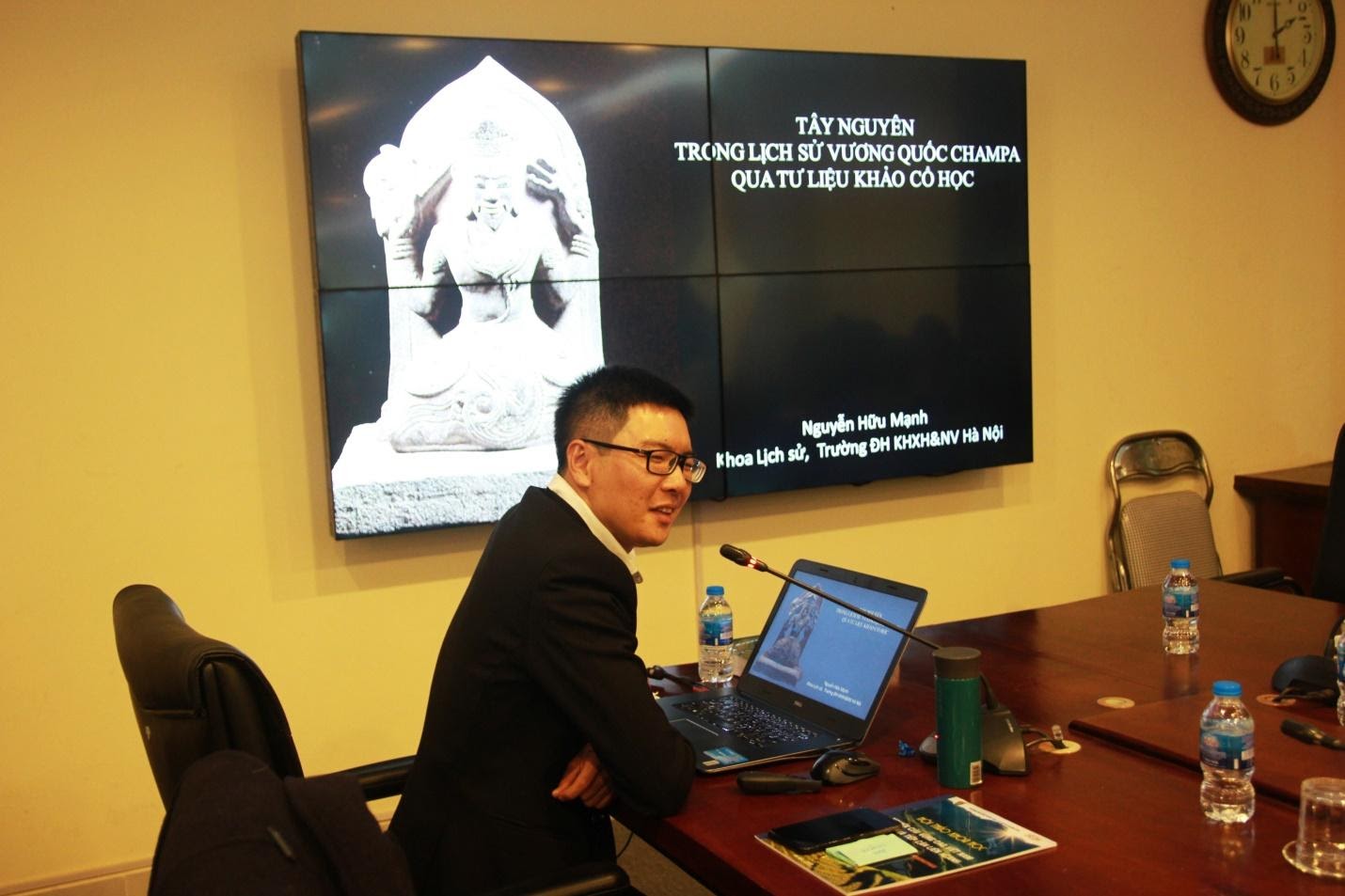
Dr. Nguyen Huu Manh (Faculty of History) presented a paper entitled "The Central Highlands in the History of the Champa Kingdom through Archaeological Documents".
The reports all highlight a dynamic, proactive, rich, and interconnected highland region of Vietnam:
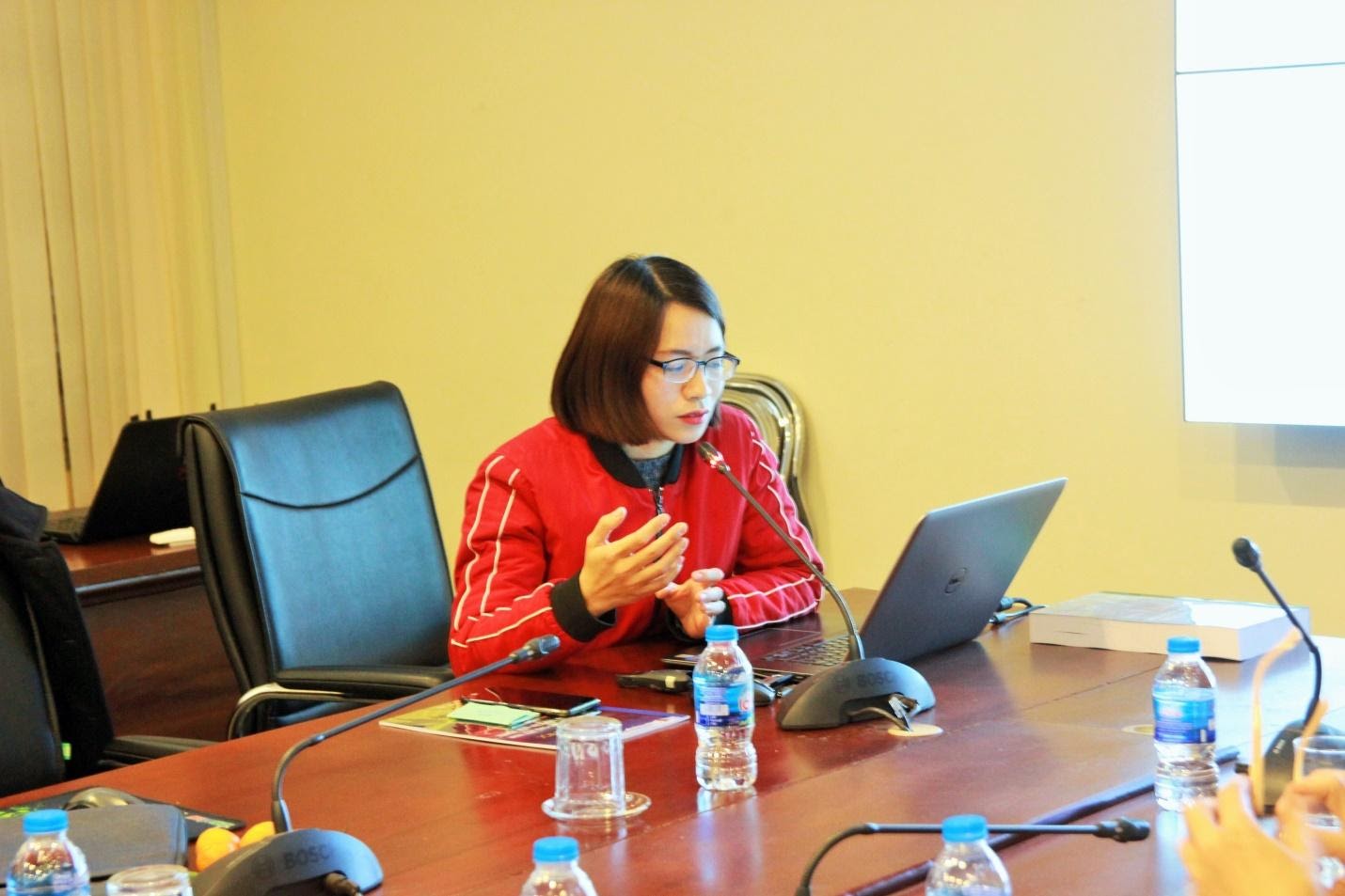
Ms. Vu Thi Xuyen (Faculty of Vietnamese Studies & Vietnamese Language) presented her paper "A Re-examination of the Nguyen Lords' Policies Towards the Central Highlands in the 16th-18th Centuries".
Politically, these are the indigenous entities/institutions that existed from their origins to the modern era, such as the mountain power systems that were not only spatial but also altitude-based, like the chieftain system in the North; like Upper Champa, Thuy Xa, Hoa Xa, and Gia Rai in the Central Highlands; and like the Bahnar local chieftain system in Kon Tum until the late 19th and early 20th centuries. The inherent nature of these highland polities was central to the territorial, power, and economic development of the Ly, Tran, Le, and Nguyen monarchies; served as intermediaries for the spread of religion; and the cultural and social traces of these entities have been and continue to be a concern and policy focus of the Communist Party and the current Vietnamese State.
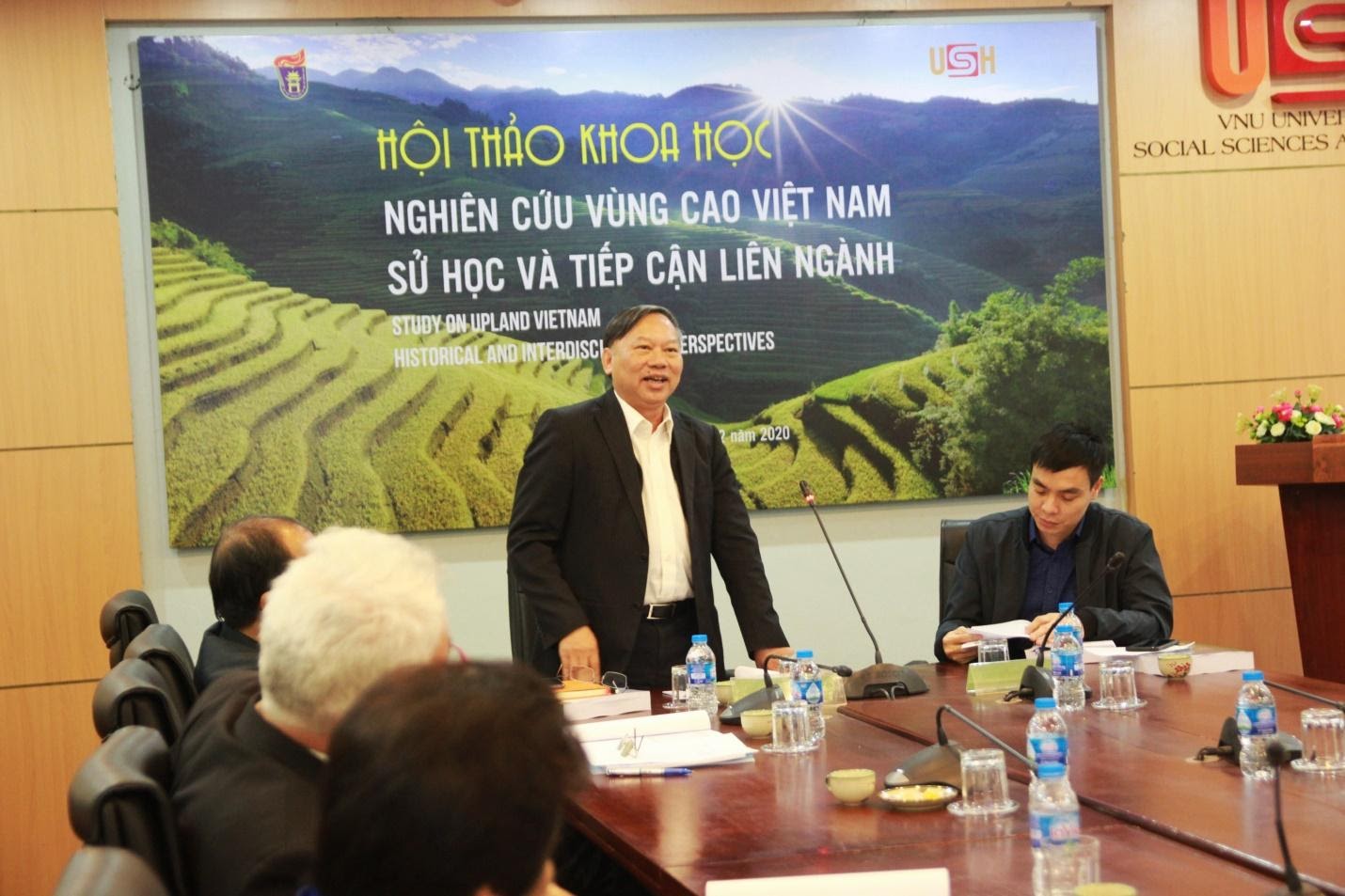
Prof. Dr. Nguyen Quang Ngoc (Institute of Vietnamese Studies and Development Science, VNU Hanoi) & Assoc. Prof. Dr. Phan Ngoc Huyen (Hanoi Pedagogical University) chaired Session 4 (Truong Son - Central Highlands Region 2)
Economically, contrary to traditional perceptions of a backward, passive, and impoverished highland region, studies on mining, the medicinal herb trade networks of the contemporary Dao people in the North, and a system of historical riverine trade networks in the South of Central Vietnam all show that the highland region was connected and played a crucial, even decisive, role as a bridgehead for the entire network. Furthermore, mining in the mountainous areas may well have been a driving force rather than a consequence of socio-economic changes in Northern Vietnam during the Early Modern period.
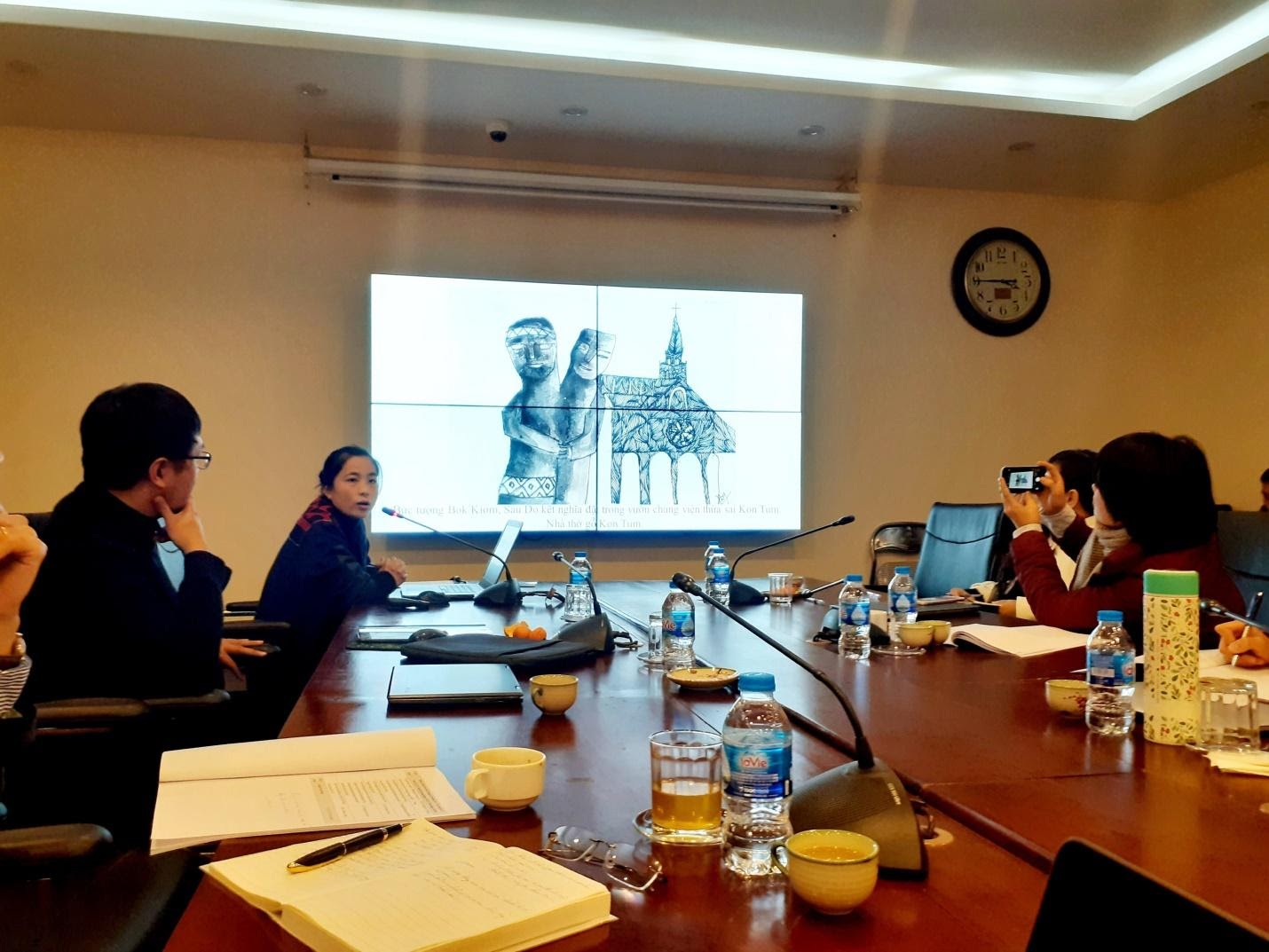
Dr. Nguyen Dang Anh Minh (Institute of Cultural Studies, Vietnam Academy of Social Sciences & Center for Southeast Asian Studies (CASE), Paris) presented a paper entitled “Alliance with local leaders in establishing and developing the Kon Tum missionary region (1850-1900)”.
From a socio-cultural perspective, the highlands not only preserve ancient, indigenous traces such as the gong culture and the "hybrid" cultural characteristics of the Ede people, but also material remnants of polities from the lowlands, such as Champa in the Central Highlands, and Buddhist temples, stupas, inscriptions, furnaces, and harbors in both the Northwest and Northeast of Dai Viet during the Ly-Tran dynasties (11th-14th centuries). A question arises: is the presence of these material traces merely a one-way influence from the central government in the lowlands, or are there other intrinsic dimensions at play? From a social perspective, studies on migration through myths and legends in history, on social shifts and migration waves of the 20th-21st centuries, show that the highlands are in motion, traversing space, under the influence of state policies, and have even transformed traditional social structures within the last century.
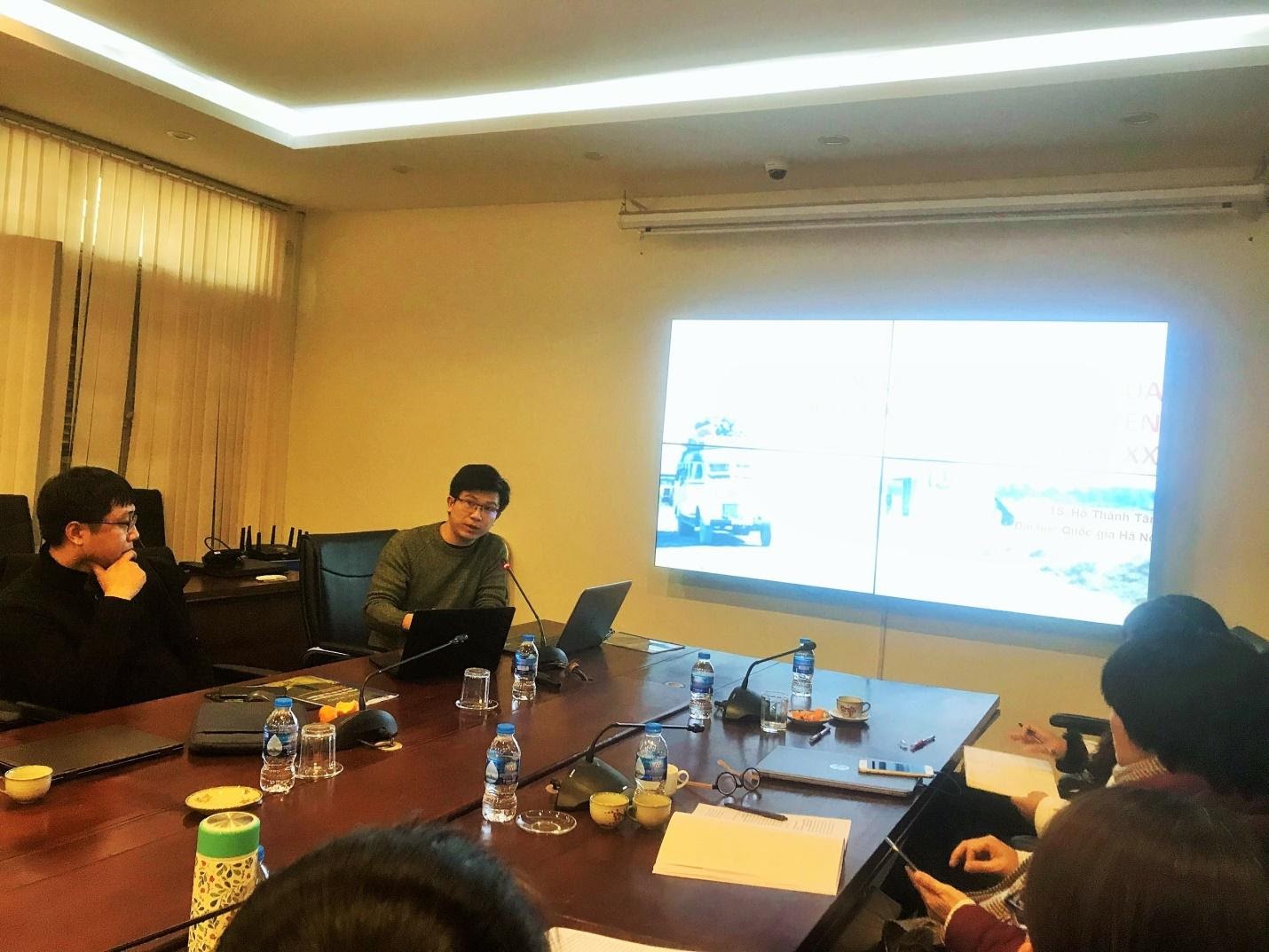
Dr. Ho Thanh Tam (Faculty of History) presented a paper entitled "Migration Waves of the Kinh People to the Central Highlands in the 20th Century".
Therefore, a major contribution that the 22 scientific reports presented today have made and will continue to make is that the history of the highlands here is not merely a mechanical addition of fragmented regional issues and spaces across Vietnam, especially in comparison with the Central region (referred to as "Central-Lower" in ancient texts), the Red River Delta, or the low-lying coastal plains of Central Vietnam. Rather, it is about the approach: a perspective from the mountains, from the highlands (supplementing the one-sided views from the central, lowland regions), but within a network connecting diverse regions within and even outside modern Vietnam. These include issues of cross-border migration, the role of Upper Champa/An Khe as a transit point between the Khmer and the port cities of South Central Vietnam, historical and contemporary trade networks, and the connection between sea and forest in the Ede psyche… Notably, some studies have truly immersed themselves in approaches from the highlands, such as mining, the Cao Bang chieftainship, the local power of the Bahnar, and other presentations.
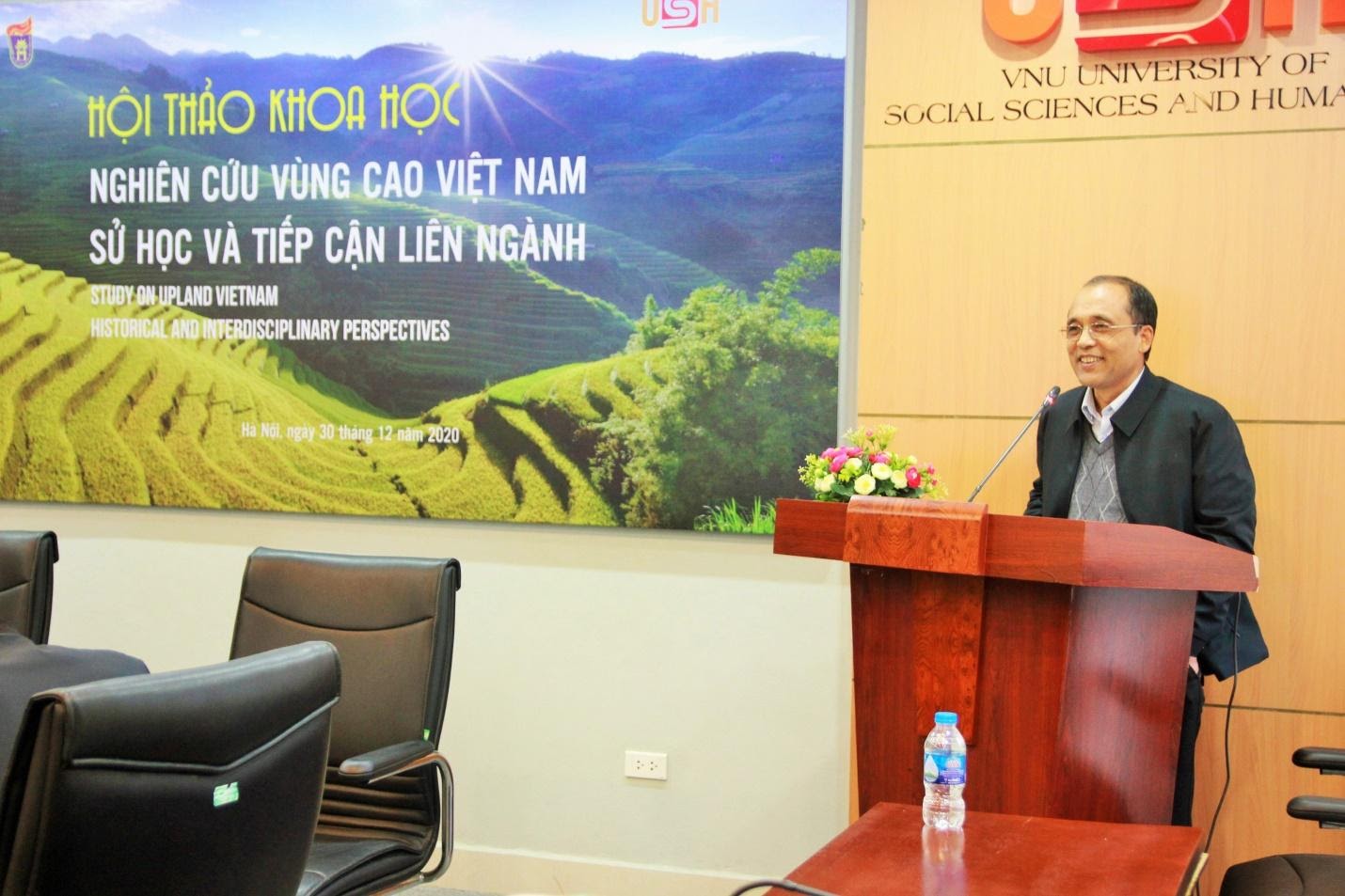
Assoc. Prof. Dr. Vu Van Quan (Head of the History Department) delivered the concluding remarks at the workshop.
Venturing into the mountainous and highland regions, one of the arguments recently raised, prompting further reflection and advancement among scholars, is the role of the Highland Valleys as the "Dynamic World" of the Thai-speaking tribes in the North, as proposed by John Whitmore and James Anderson, and the Hrê valley of Quang Ngai in the Central region, as studied by Andrew Hardy, Nguyen Tien Dong, and Dao The Duc. At the conference, scientists proposed "A View from the Valleys." Furthermore, many reports indicate that, although the concept of an "anarchic" Zomia region in mainland Southeast Asia by Willem van Schendel (2002), and especially by James C. Scott (2009), is a major, general, and influential argument; nevertheless, case studies in the highlands of Vietnam suggest the need for further reflection and/or supplementation to this captivating theory!
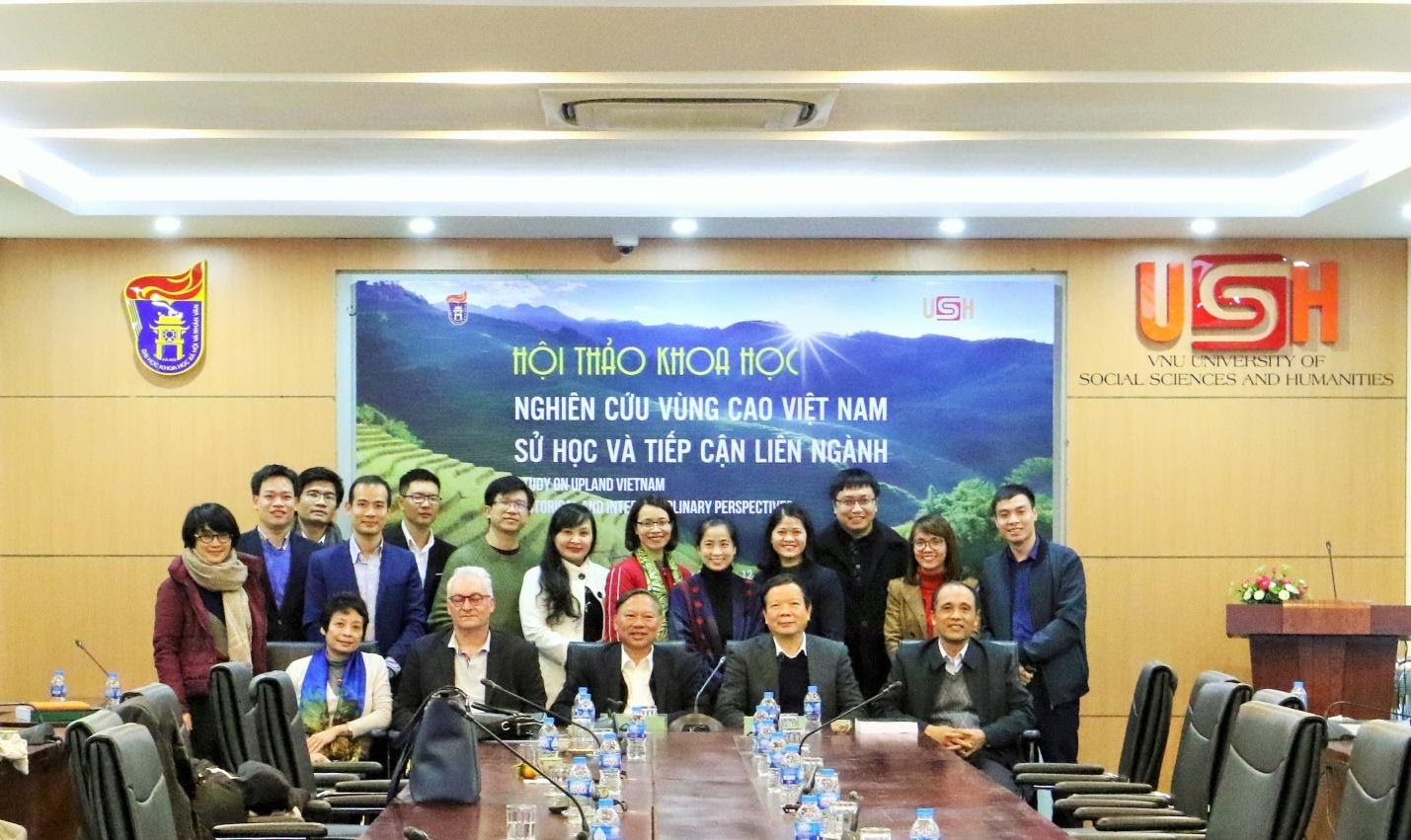
Professors, scientists, and delegates pose for a commemorative photo at the closing of the conference.
This is the first time a comprehensive discussion on highland regions has been held, particularly with an interdisciplinary approach, combining historical science with other branches of social sciences and humanities. Following the conference, scholars will publish high-quality scientific papers and aim for future research collaborations and international publications on the same topic.
Author:Lan Thuy Tam
Newer news
Older news